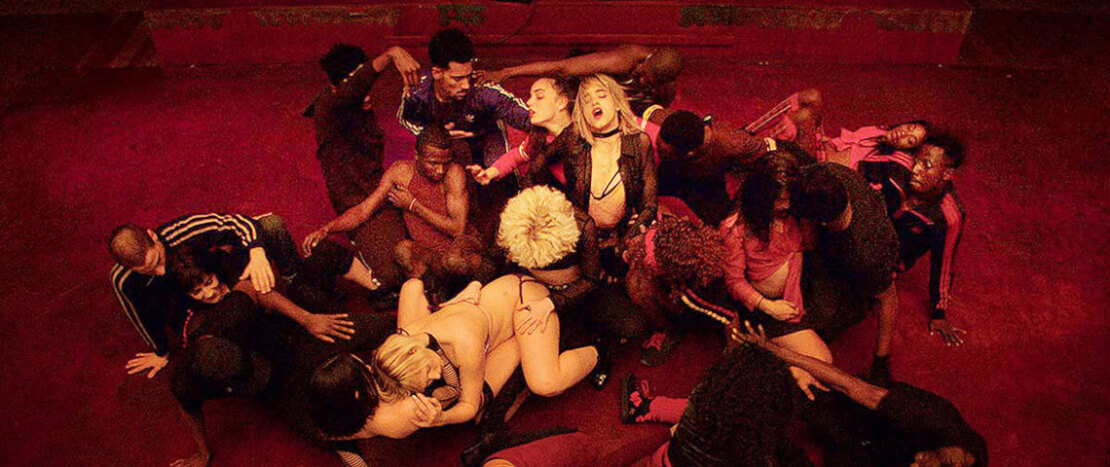Le Sel Des Larmes / The Salt of Tears
Trainee cabinet maker Luc (Logann Antuofermo) meets Djemila (Oulaya Amamra) at a Parisien bus stop. Cautiously courting her, he then dismisses when she refuses to have sex with him. Returning home to his elderly father (André Wilms), Luc reignites a smouldering romance with school-friend Geneviève (Louise Chevillotte). However, when Geneviève becomes pregnant, Luc rejects her too and heads back to Paris. Falling under the spell of yet another, more experienced woman, Luc must finally face the selfish man he has become…
Or at least that’s what director Philippe Garrel would have you believe.
…desperately wants to be significant, but like Logann Antuofermo’s lukewarm Luc, it really can’t be bothered to put the effort in.
In truth, ‘Le Sel Des Larmes / The Salt of Tears’ is nothing more than a conceited confection, which leans heavily on its new wave colour palette as if to offer some kind of earnest introspection. Yet, with its matter-of-fact narration that skips over any available character growth, its grating runtime of 90 minutes becomes a film that tells more than it shows.
With its obvious camera ogling the naked bodies of its female cast and yet shyly keeping covered up for the boys, this is another male-centric tale of “oh-woe-is-me” misery for anyone who missed any of France’s cinematic output from 1968 onwards.
Coming off as a post-modern backwash of gitanes-inspired reveries, ‘The Salt of Tears’ desperately wants to be significant, but like Logann Antuofermo’s lukewarm Luc, it really can’t be bothered to put the effort in. The only member of the cast who is let within any touching distance of ‘the truth’ is André Wilms’s as Luc’s elderly father.
However, similar to Luc protesting that he has been trapped by his pregnant Geneviève, Philippe Garrel’s film shamelessly lacks any surprise or counter-narrative that would save it. Defying any kind of progressive or sexual emancipation, the dramatic beats here are so heavy that fortunately all of the pseudo-existentialist pretensions it reaches for have already been buried in the past.
Fed into a grainy black and white blender, Garrel hopes that ‘The Salt of Tears’s’ diet of beautiful boys, disarmed girls, kindly parents, and its turned-up collar towards sex will somehow pass in today’s present tense. It won’t and it doesn’t. In fact, like the thunderous piano notes that shriek every time you-should-care-for-poor-Luc-now, I hope Garrel chokes on it.
Ça me fatigue.










